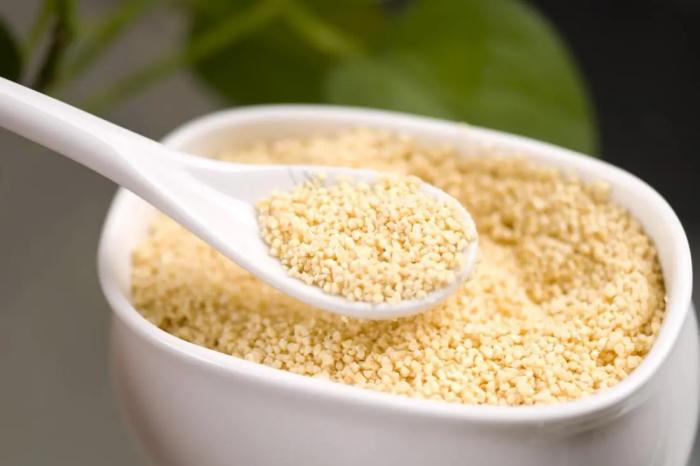Breastfeeding is a vital part of nurturing a newborn. It provides essential nutrients and helps form a strong bond between mother and baby. Many mothers look for ways to enhance their breastfeeding experience. One supplement that has gained attention is lecithin. In this article, we will explore the benefits of lecithin for breastfeeding mothers and how it can support their health and milk production.
What is Lecithin?
Lecithin is a fatty substance found in various foods and is essential for human health. It is a phospholipid, which means it helps form cell membranes. Lecithin can be sourced from soybeans, eggs, sunflower seeds, and other foods. It is available in various forms, including granules, capsules, and liquid. Lecithin is known for its emulsifying properties, making it useful in food and supplement industries.
Nutritional Profile of Lecithin
Lecithin is rich in several important nutrients. It contains:
Choline: Essential for brain health and development.
Phospholipids: Important for cellular structure and function.
Fatty Acids: Help support overall health.
These nutrients make lecithin a beneficial supplement, especially for breastfeeding mothers.
Benefits of Lecithin for Breastfeeding Mothers
1. Supports Milk Production
One of the primary benefits of lecithin is its potential to support milk production. Some studies suggest that lecithin may help improve the quality of breast milk. It can help ensure that milk has the right balance of fats, which is essential for the baby’s growth and development. Mothers seeking to enhance their milk supply may find lecithin a helpful addition to their diet.
2. Reduces Clogged Milk Ducts
Clogged milk ducts can be a painful issue for breastfeeding mothers. Lecithin acts as an emulsifier, which means it helps break down fats in the milk. This property may help reduce the risk of clogged ducts. By improving milk flow and preventing blockages, lecithin can make breastfeeding more comfortable for mothers.
3. Enhances Nutrient Absorption
Lecithin can aid in the absorption of fat-soluble vitamins, such as vitamins A, D, E, and K. These vitamins are crucial for both mother and baby. Proper absorption of these nutrients can improve overall health and support the baby’s development. This is particularly important during the breastfeeding period when nutrient needs are high.
4. Supports Brain Health
The choline found in lecithin is vital for brain health. It plays a key role in the development of the baby’s brain and nervous system. Adequate choline intake during breastfeeding can contribute to the cognitive development of the infant. Mothers who include lecithin in their diet can help ensure they are providing the necessary nutrients for their baby’s brain health.
5. Promotes Healthy Skin
Breastfeeding can lead to skin changes in mothers. Lecithin may help maintain healthy skin due to its moisturizing properties. It can support the skin barrier, helping to retain moisture and prevent dryness. This is especially beneficial for mothers who may experience dry skin during breastfeeding.
6. Boosts Energy Levels
Breastfeeding can be physically demanding. Many mothers experience fatigue, especially during the early weeks. Lecithin can help support energy levels. The fatty acids in lecithin provide a source of energy, which can help mothers feel more energized throughout the day. This boost can make it easier to care for the baby and manage daily tasks.
7. Supports Digestive Health
Lecithin may also benefit digestive health. It can help improve digestion and promote healthy gut flora. This is essential for both mother and baby. A healthy digestive system can lead to better nutrient absorption and overall wellness. Including lecithin in the diet can support a mother’s digestive health during the breastfeeding phase.
How to Incorporate Lecithin into Your Diet
Adding lecithin to your diet is easy. Here are some simple ways to incorporate it:
Lecithin Granules: Sprinkle lecithin granules on oatmeal, yogurt, or smoothies.
Lecithin Capsules: Take lecithin capsules as a supplement, following the recommended dosage on the label.
Cooking: Use lecithin liquid in salad dressings or sauces to enhance texture and health benefits.
Baking: Add lecithin to baked goods for improved moisture and texture.
Precautions and Considerations
While lecithin offers numerous benefits, it is essential to use it wisely. Here are some precautions:
Consult a Doctor: Always consult a healthcare professional before adding new supplements to your diet, especially during breastfeeding.
Monitor for Allergies: Some individuals may be allergic to soy or eggs, which are common sources of lecithin. Be mindful of any allergic reactions.
Choose Quality Products: Look for high-quality lecithin supplements from reputable brands to ensure safety and effectiveness.
Balance with Diet: Lecithin should complement a balanced diet, not replace whole foods. Focus on overall nutrition to support breastfeeding.
See also: Can I Drink Malt While Breastfeeding
Conclusion
Lecithin is a valuable supplement for breastfeeding mothers. Its numerous benefits, including support for milk production, reduction of clogged ducts, and enhancement of nutrient absorption, make it a helpful addition to a nursing mother’s diet. With its rich nutritional profile, lecithin can also promote brain health, boost energy levels, and support digestive health.
As with any supplement, it is crucial to consult a healthcare professional before starting lecithin. When used wisely, lecithin can enhance the breastfeeding experience, helping mothers thrive during this important phase. By incorporating lecithin into their daily routine, mothers can enjoy a range of health benefits that support their breastfeeding journey and overall well-being.
Related topics:


